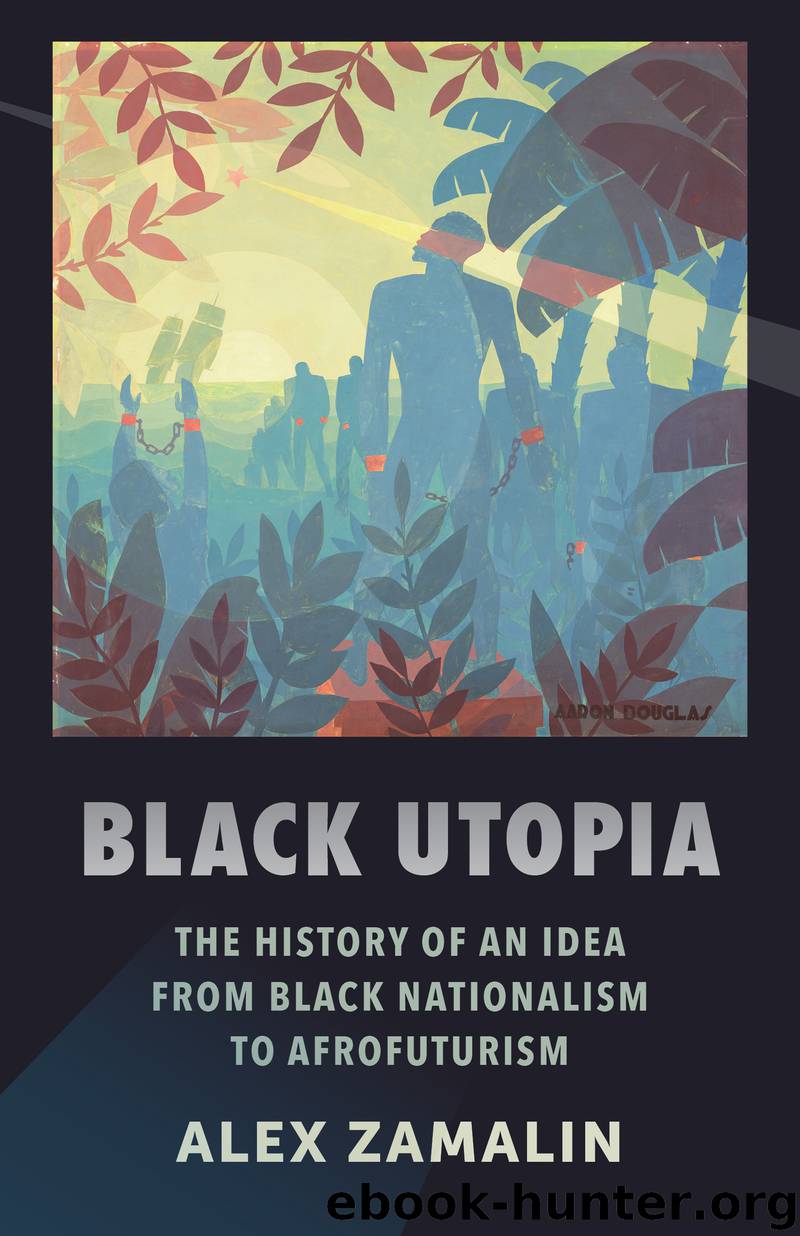Black Utopia by Alex Zamalin

Author:Alex Zamalin
Language: eng
Format: epub
Publisher: Columbia University Press
6
SUN RA AND COSMIC BLACKNESS
Herman Blount, who would more famously be known as Le Sony’r Ra, or “Sun Ra” (1914–93), was a twentieth-century pioneer in avant-garde jazz composition and performance. He saw his inheritance in the long tradition of black musicians like Bessie Smith, Ida Cox, Ethel Waters, Duke Ellington, and Charlie Parker. But his otherworldly philosophical musings suffused with a metaphysical exploration of human existence linked him to the black utopian tradition.1 No figure before Ra had so thoroughly sanctified the concept of utopia and imagined it in a way that was virtually unrecognizable and unrealizable. And no one had defined it with such moral seriousness in ways that were so obscure and contradictory.
Ra’s provocative suggestion was not that black people needed to immigrate or assimilate, but that they needed to undertake space travel in search of new planets. Within the context of the black utopian tradition, his view was much like the music produced by his band, the Arkestra. It was by turns striking, unsettling, and thought-provoking—collapsing distinctions between fact and fiction, belief and imagination. But what Ra thought was a matter of absolute consistency, critics treated as a blatant contradiction. Many celebrated Ra’s noncommercial, underground Afro-modern music for its blend of Afro-beat, gospel, blues, funk, and jazz. No doubt, there was something revolutionary in his attempt to fuse the stylized cool of a Miles Davis with Wagnerian epic, to mix the atonalism of an Arnold Schoenberg with the experimental repetitions and silences of a John Cage and Philip Glass. To move from past to present, across cultures and between sounds that were, by turns, euphoric and nightmarish, transcendent and haunting. But many critics derided what they perceived as Ra’s embarrassing personal eccentricities. For them, his combination of mysticism, poetic reasoning, and aphoristic quotations—as well as highly stylized public persona as someone who was from but not of this world—merely diminished his art. This made him less the artistic genius he was and more of a charlatan, if not trickster. Many were entertained by his presence. Some were transformed by his sounds. But very few wanted to listen to what Ra had to say.
Download
This site does not store any files on its server. We only index and link to content provided by other sites. Please contact the content providers to delete copyright contents if any and email us, we'll remove relevant links or contents immediately.
| African | Asian |
| Australian & Oceanian | Canadian |
| Caribbean & Latin American | European |
| Jewish | Middle Eastern |
| Russian | United States |
4 3 2 1: A Novel by Paul Auster(11048)
The handmaid's tale by Margaret Atwood(6852)
Giovanni's Room by James Baldwin(5878)
Big Magic: Creative Living Beyond Fear by Elizabeth Gilbert(4723)
Asking the Right Questions: A Guide to Critical Thinking by M. Neil Browne & Stuart M. Keeley(4574)
On Writing A Memoir of the Craft by Stephen King(4213)
Ego Is the Enemy by Ryan Holiday(3991)
Ken Follett - World without end by Ken Follett(3972)
The Body: A Guide for Occupants by Bill Bryson(3800)
Bluets by Maggie Nelson(3710)
Adulting by Kelly Williams Brown(3670)
Guilty Pleasures by Laurell K Hamilton(3586)
Eat That Frog! by Brian Tracy(3514)
White Noise - A Novel by Don DeLillo(3434)
The Poetry of Pablo Neruda by Pablo Neruda(3366)
Alive: The Story of the Andes Survivors by Piers Paul Read(3310)
The Bookshop by Penelope Fitzgerald(3225)
The Book of Joy by Dalai Lama(3217)
Fingerprints of the Gods by Graham Hancock(3212)
